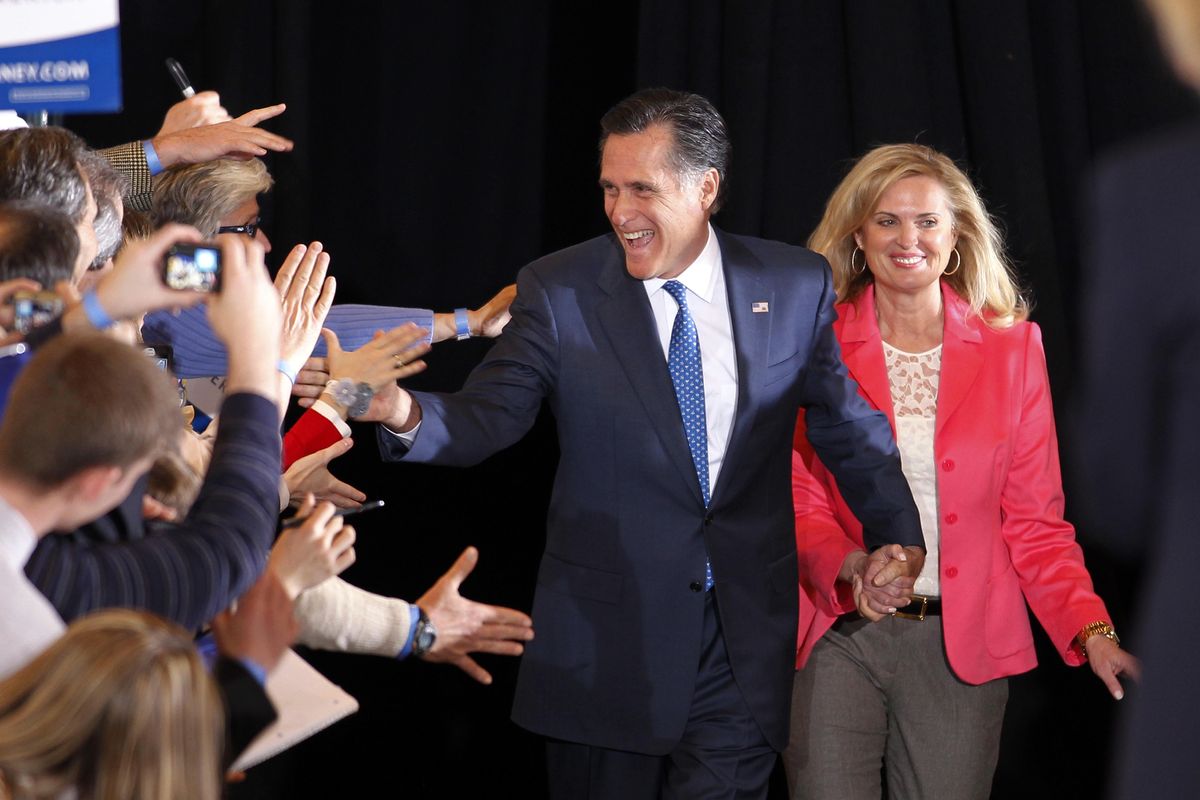Romney pads lead; Santorum still in it
Delegate front-runner picks up key Ohio victory

WASHINGTON – Mitt Romney squeezed out a win in pivotal Ohio, captured four other states with ease and padded his delegate lead in the race for the Republican presidential nomination. But he was forced to share the Super Tuesday spotlight with a resurgent Rick Santorum.
“I’m going to get this nomination,” Romney told cheering supporters in Massachusetts, pointing particularly to delegate support that was greater than the combined totals of his three rivals.
On the busiest night of the campaign, Romney scored a home-state win in Massachusetts to go with primary victories in Vermont and in Virginia – where neither Santorum nor Newt Gingrich was on the ballot. He added the Idaho caucuses to his column.
Ohio was the big win, though, and the closest contest of all as the Republican rivals battled for the chance to face Democratic President Barack Obama in November.
Santorum countered crisply, winning primaries in Oklahoma and Tennessee and the North Dakota caucuses – raising fresh doubts about Romney’s ability to corral the votes of conservatives in some of the most Republican states in the country.
Ohio was the marquee matchup, a second industrial-state showdown in as many weeks between Romney and Santorum. It drew the most campaigning and television advertisements of all 10 Super Tuesday contests and for good reason – no Republican has ever won the White House without carrying the state in the fall.
After trailing for much of the night, Romney forged ahead in a count that stretched past midnight. With votes tallied in 99 percent of the state’s precincts, he led by about 12,000 out of 1.1 million cast.
Gingrich had a victory in his column, too – his first win in more than six weeks. The former House speaker triumphed at home in Georgia, but a barrage of attack ads by a super PAC supporting Romney helped hold him below 50 percent and forced him to share the delegates.
Texas Rep. Ron Paul pinned his hopes on Alaska as he scratched for his first victory of the campaign season.
Returns from the first 13 percent of the state’s precincts showed Romney ahead with 32 percent support, and Paul trailing with 25 percent. Santorum had 23 percent and Gingrich 20.
Santorum waited until Oklahoma and Tennessee fell into his column before speaking to cheering supporters in Ohio. “This was a big night tonight,” he said. “We have won in the West, the Midwest and the South, and we’re ready to win across this country.”
In all, there were primaries in Virginia, Vermont, Ohio, Massachusetts, Georgia, Tennessee and Oklahoma. Caucuses in North Dakota, Idaho and Alaska rounded out the calendar.
Romney picked up at least 204 of the 419 Super Tuesday delegates at stake. Santorum gained at least 77, Gingrich 69 and Paul at least 16.
That gave the former Massachusetts governor 407, more than all his rivals combined, a total that included endorsements from members of the Republican National Committee who automatically attend the convention and can support any candidate they choose. Santorum had 169 delegates, Gingrich 102 and Paul 41. It takes 1,144 delegates to win the nomination at the Republican National Convention in Tampa, Fla., this summer.
The split of the states ensured that the most turbulent Republican presidential campaign in a generation would continue.
Already, the candidates were looking ahead to the next contests, Kansas and Wyoming caucuses on Saturday, followed by Alabama and Mississippi primaries on March 13.
Restore our Future, the super PAC that backs Romney, disclosed a near-$1 million investment for television ads in Illinois, the next big-state primary on the calendar, on March 20. The organization is already airing commercials in Mississippi and Alabama, as is a group that supports Gingrich, although at lower levels.
Ohio Republicans were a party divided, based not only on the popular vote but also on interviews with voters as they left their polling places.
Santorum outpolled Romney among Ohioans with incomes under $100,000, while Romney won among those with six-figure incomes and up. Romney won among working women, Santorum among women who do not work.
Santorum won among self-described conservatives, while Romney outpointed his rival among those who said they are moderate or liberal.
Santorum was preferred by the half of the electorate that is born-again. Romney was the favorite among the half of the electorate that said it is not.
In interviews in all the primary states, Republicans said the economy was the top issue and an ability to defeat Obama was what mattered most as they made their Super Tuesday choices.
They also indicated nagging concerns about the candidate they supported, even in Massachusetts, There, one-third of all primary voters said they had reservations, and about three-quarters of those voted for Romney.
Massachusetts is a reliably Democratic state in most presidential elections, but in Ohio, 41 percent of primary voters said they, too, had reservations about the candidate they supported.